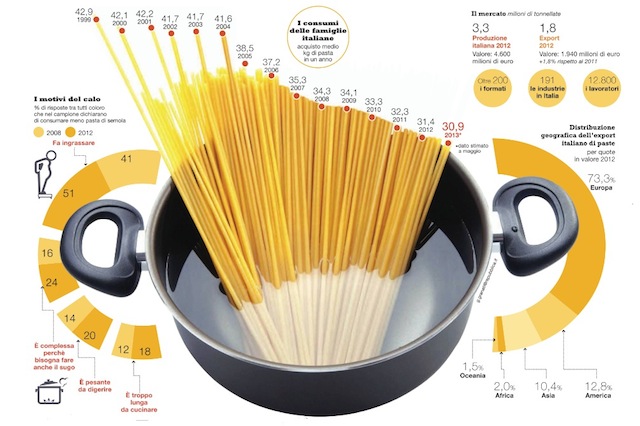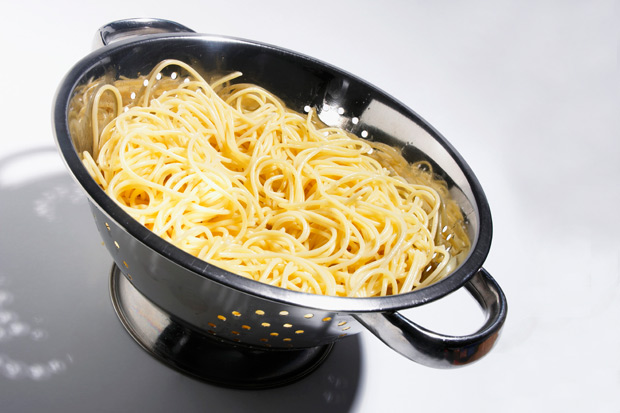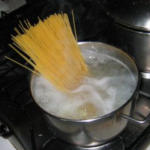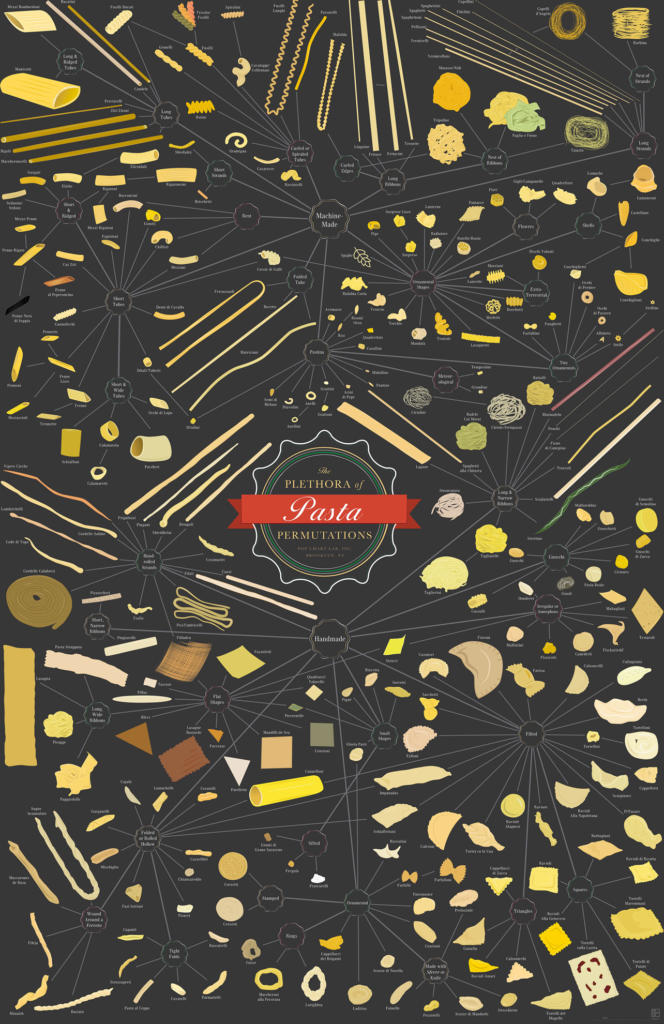 For an Italian, and for any person who attends a lot Italy, prepare a plate of pasta, or “pastasciutta” as is customary to call it in Rome, it is something natural, like breathing.
For an Italian, and for any person who attends a lot Italy, prepare a plate of pasta, or “pastasciutta” as is customary to call it in Rome, it is something natural, like breathing.
Pastasciutta (pastashoota) is the Italian word for any of the innumerable pasta and sauce dishes that italians are so enthusiastic about and hands down our favorite thing to cook and eat!
Each type of pasta has the exact times of cooking, usually printed on the packaging, and every family has its Italian taster that establishes its well cooked “al dente” and then communicates that “you can drain,” or empty the pot flat water and pasta in the colander.

The Pasta not only a food but it is also a symbol of Italy, so that for someone the pasta is Italy. First chefs argue that pasta should not bake, you must only rehydrate.
Then think, as we all do that pasta should be cooked is a misconception; the pasta is immersed in boiling water and thanks to the heat from dry softens reidratandosi. So it seems that it is not necessary that the water is in continuous boiling

Prior to “throw the pasta in the pan,” or insert the pasta in the boiling water we have to be sure that it is actually boiling. Then insert the dough only after having salted and only after boiling has begun, but it took a few minutes will be possible to lower the minimum water or even take it off the fire as suggested with the “passive cooking” of the chef Gualtiero Marchesi.
In passive cooking pasta should cook only 2 minutes from a boil, or since the water has started to boil after having put it into the pot. So we put out the fire and cover the pot with a lid.
Through this operation the dough continues its cooking, passively, until the end of the minutes required for that kind of dough.
If instead the dough bubbles all the time on the fire, he scatters much starch and gluten and therefore also flavors and nutrients.
COTTURA AL DENTE
Cook the “pasta al dente“, or leave a little “hard” is an Italian tradition that is respected not only for the taste, but also because almost all Italians know that so it is more digestible releasing all the nutritional values.
Then remember that the pasta water is thrown entirely, always keep it a bit from before draining. The pasta water will often useful because it is rich in flavors that enrich the sauce that may be too dry, and then is used to lengthen
Exact amount of water and salt
Know that it is good to cook the pasta in boiling salted water. To make sure you get it right we are going to use the rule: 1 liter of water and 10 g of salt per 100 g of pasta.
Spaghetti protruding
 When cooking pasta long is a typical situation where you are if you do not break the spaghetti. The pot on the stove and long pasta that remains out of the water to 1/3. Sometimes just a mixed and spaghetti become flabby in the pot, but if we’re dealing with a bronze-cut pasta of good quality it will take at least 2 or 3 minutes with the result of having a pasta course half hot and half raw. So always remember you use a pot or a pan suitable.
When cooking pasta long is a typical situation where you are if you do not break the spaghetti. The pot on the stove and long pasta that remains out of the water to 1/3. Sometimes just a mixed and spaghetti become flabby in the pot, but if we’re dealing with a bronze-cut pasta of good quality it will take at least 2 or 3 minutes with the result of having a pasta course half hot and half raw. So always remember you use a pot or a pan suitable.

Source: http://popchartlab.com/products/the-plethora-of-pasta-permutations
The 10 Golden Rules of pasta masters to cook pasta
1. Use always water in the proportion of 1 liter for every 100 grams of pasta this rule is critical because the dough must rehydrate very well.
2. To salt the water only use coarse kitchen salt (Sale grosso) in the proportion of about 12 grams per liter of water.
3. Add the salt only after the water has reached the boiling point and make sure it is fully dissolved and be careful to wait, before you insert the dough, which has taken over the boiling water. Recall that the salt water boils at higher temperatures and then more slowly reaches the boiling state.
4. Use a pot or a pan quite capable with high walls because the pasta will cook floating well. One must always enter the pasta in the water (both fresh and dried) at one time and remember to mix immediately thus will not stick. The cooking will be done with the pot and discovery with a pretty lively flame, stirring frequently.
5. To prevent certain types of fresh pasta, like tagliatelle, pappardelle, spaghetti, trofie etc., From sticking during cooking, you can add the water a little olive oil extra virgin olive oil. For certain types of pasta whose cooking ends in the oven, such as lasagne, cannelloni, quiches, pies, pasties etc., You have to keep the dough enough raw or al dente, and it is advisable to cool it with cold water before draining remembering heat the oven at an early stage.
6. For cooking times of dry pasta must always follow the instructions on cooking times that are printed on the packaging. Fresh pasta follow the directions given in the recipes. It ‘always good to taste the pasta just before you drain it. Once the dough has reached the right point in pouring cooking pot of ‘cold tap water to stop the cooking immediately, and immediately drain.
7. Drain the pasta a little hard, “al dente”, keeping aside some of the cooking water.
8. Heat always the bowl or pot with boiling water and dry them well before adding the pasta, unless you are doing a plate of pasta to be served cold.
9. Season the pasta with the sauce and serve the remaining hot, sauce boat and in this because the sauce easily collects on the bottom of the bowl.
10. Add any cheese at the end, or serve in part, when the dough has completely absorbed the sauce, making sure to grate it just at the moment, except in cases where the cheese is an ingredient of the sauce.
The Rome Central – Italy in the world editorial staff consists of freelance editors, journalists, photographers, filmmakers, doctors, writers, video-makers, supporters, poets, writers, actors, singers and many friends.
RomeCentral is a Magazine completely no-profit , whoever writes in this magazine does his job without any commercial pressure.
NB: No people in Rome Central, from managers to employees etc .., receive any type of compensation.
The love for the free journalism repays all our efforts.










Rome Central, magazine for residents and tourits liked this on Facebook.
Margherita Fiaccavento liked this on Facebook.